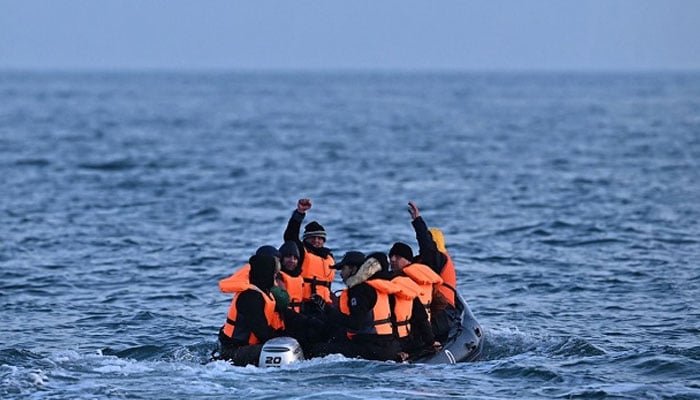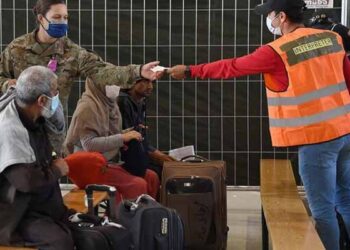Select Language:
About 100 Sudanese refugees are presumed dead or missing after experiencing two separate boat accidents off Libya’s coast last weekend, according to United Nations agencies. One vessel capsized on Saturday and another caught fire on Sunday, both near the eastern port city of Tobruk.
The first boat was carrying 74 individuals, primarily Sudanese refugees, the UN Refugee Agency (UNHCR) reported on its X platform dedicated to Libya. Only 13 people survived, while dozens remain unaccounted for from Saturday’s sinking.
An International Organization for Migration (IOM) spokesperson told AFP that Sunday’s tragedy involved a rubber boat transporting 75 Sudanese refugees toward Greece, which caught fire. The spokesperson estimated that at least 50 people lost their lives.
Details regarding the age or gender of those on the vessels were not immediately available from UNHCR or IOM. The IOM provided immediate medical assistance to the 24 survivors, but it’s unclear if any others are still missing from Sunday’s incident.
Libya continues to serve as a major transit point for thousands of migrants aiming to reach Europe by sea each year. Between January 1 and September 13, the IOM reports at least 456 migrants have died along the central Mediterranean route, with 420 others missing.
This year, Libyan authorities have intercepted and returned approximately 17,402 migrants, including 1,516 women and 586 children. The ongoing conflict in neighboring Sudan — involving government forces and paramilitary groups — has displaced over 140,000 refugees into Libya over the past two years, nearly doubling the Sudanese refugee population within the country.
Many refugees endure near-slavery conditions in Libya, as migrants recount to AFP, while others undertake the perilous journey by sea in hopes of reaching Europe. The IOM describes the central Mediterranean crossing as one of the deadliest migrant routes globally, with 2,573 individuals dying attempting to reach Europe in 2024 alone.
Libya remains fractured and volatile, still grappling with years of unrest after NATO-supported efforts toppled longtime ruler Muammar Gaddafi in 2011. The country is divided between a UN-recognized government in the west and a rival faction in the east, led by military commander Khalifa Haftar.
Human traffickers and smugglers exploit this instability, leading to numerous human rights abuses including extortion and slavery, according to human rights organizations.







